第15章 Chapter 4(4)
Mr.Browning became very early familiar with the names of the great painters,and also learned something about their work;for the Dulwich Gallery was within a pleasant walk of his home,and his father constantly took him there.He retained through life a deep interest in art and artists,and became a very familiar figure in one or two London studios.
Some drawings made by him from the nude,in Italy,and for which he had prepared himself by assiduous copying of casts and study of human anatomy,had,I believe,great merit.
But painting was one of the subjects in which he never received instruction,though he modelled,under the direction of his friend Mr.Story;and a letter of his own will presently show that,in his youth at least,he never credited himself with exceptional artistic power.
That he might have become an artist,and perhaps a great one,is difficult to doubt,in the face of his brilliant general ability and special gifts.The power to do a thing is,however,distinct from the impulse to do it,and proved so in the present case.
More importance may be given to an idea of his father's that he should qualify himself for the Bar.It would naturally coincide with the widening of the social horizon which his University College classes supplied;it was possibly suggested by the fact that the closest friends he had already made,and others whom he was perhaps now making,were barristers.But this also remained an idea.He might have been placed in the Bank of England,where the virtual offer of an appointment had been made to him through his father;but the elder Browning spontaneously rejected this,as unworthy of his son's powers.
He had never,he said,liked bank work himself,and could not,therefore,impose it on him.
We have still to notice another,and a more mistaken view of the possibilities of Mr.Browning's life.It has been recently stated,doubtless on the authority of some words of his own,that the Church was a profession to which he once felt himself drawn.
But an admission of this kind could only refer to that period of his childhood when natural impulse,combined with his mother's teaching and guidance,frequently caused his fancy and his feelings to assume a religious form.
From the time when he was a free agent he ceased to be even a regular churchgoer,though religion became more,rather than less,an integral part of his inner life;and his alleged fondness for a variety of preachers meant really that he only listened to those who,from personal association or conspicuous merit,were interesting to him.I have mentioned Canon Melvill as one of these;the Rev.Thomas Jones was,as will be seen,another.
In Venice he constantly,with his sister,joined the congregation of an Italian minister of the little Vaudois church there.He extemporized a surplice or gown,climbed into an arm-chair by way of pulpit,and held forth so vehemently that his scarcely more than baby sister was frightened and began to cry;whereupon he turned to an imaginary presence,and said,with all the sternness which the occasion required,'Pew-opener,remove that child.'
--
It would be far less surprising if we were told,on sufficient authority,that he had been disturbed by hankerings for the stage.
He was a passionate admirer of good acting,and would walk from London to Richmond and back again to see Edmund Kean when he was performing there.
We know how Macready impressed him,though the finer genius of Kean became very apparent to his retrospective judgment of the two;and it was impossible to see or hear him,as even an old man,in some momentary personation of one of Shakespeare's characters,above all of Richard III.,and not feel that a great actor had been lost in him.
So few professions were thought open to gentlemen in Robert Browning's eighteenth year,that his father's acquiescence in that which he had chosen might seem a matter scarcely less of necessity than of kindness.
But we must seek the kindness not only in this first,almost inevitable,assent to his son's becoming a writer,but in the subsequent unfailing readiness to support him in his literary career.
'Paracelsus','Sordello',and the whole of 'Bells and Pomegranates'
were published at his father's expense,and,incredible as it appears,brought no return to him.This was vividly present to Mr.Browning's mind in what Mrs.Kemble so justly defines as those 'remembering days'
which are the natural prelude to the forgetting ones.
He declared,in the course of these,to a friend,that for it alone he owed more to his father than to anyone else in the world.
Words to this effect,spoken in conversation with his sister,have since,as it was right they should,found their way into print.
The more justly will the world interpret any incidental admission he may ever have made,of intellectual disagreement between that father and himself.
When the die was cast,and young Browning was definitely to adopt literature as his profession,he qualified himself for it by reading and digesting the whole of Johnson's Dictionary.We cannot be surprised to hear this of one who displayed so great a mastery of words,and so deep a knowledge of the capacities of the English language.